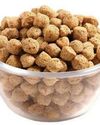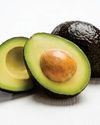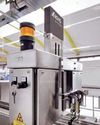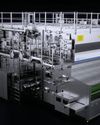
The National Nanofab Center announced on Monday that it had developed technology to detect food poisoning bacteria using a nano structural body that was formed using the semiconductor processing technology.
The research team created the nano-hair structural body using a semiconductor processing technology, and combined it with a fluorescent gene probe that generates a selective response to bacteria.
With this method, the research team succeeded in forming a nano structure that is highly cohesive with pathogenic bacteria.
By using a 500-nanometer nano pillar and tens of nanometer-sized projection structure, the nano-hair structural body can capture and detect food poisoning bacteria in real time.
The research team said that the new technology would enable the detection and analysis of food poisoning bacteria contained in kitchenware and food ingredients on the spot within five minutes.
The research team plans to push for commercialization of the new technology through nano structure mass production, field performance testing and verification.
How do you see the current Mechanical seal market evolving in India? What are the major factors driving its growth?
This story is from the April 2021 edition of Food & Beverages Processing.
Start your 7-day Magzter GOLD free trial to access thousands of curated premium stories, and 9,000+ magazines and newspapers.
Already a subscriber ? Sign In
This story is from the April 2021 edition of Food & Beverages Processing.
Start your 7-day Magzter GOLD free trial to access thousands of curated premium stories, and 9,000+ magazines and newspapers.
Already a subscriber? Sign In

Therapeutic Use Of Indian Winter Cherry (Ashwagandha)
Ashwagandha is one of the most important herbs in Ayurveda, which is a traditional form of alternative medicine based on Indian principles of natural healing. Ashwagandha is a small, woody shrub in the Solanaceae family that grows about two feet in height.

The Dairy Chain Revolution: Ensuring Freshness and Efficiency
Dairy products are an integral part of the food processing industry, forming milk, cheese, yogurt, and butter are highly perishable and demand meticulous care to preserve their quality and safety throughout their journey from farm to consumer.

Plant-Based Proteins from Soybean: A Comprehensive Exploration
Introduction - In recent years, the global food landscape has witnessed a remarkable shift toward plant-based diets, driven by a growing awareness of health, environmental sustainability, and ethical considerations.

Avocado: The Green Ally in the Fight Against Diabetes
In a world inundated with processed foods laden with excessive sugars, salts, and artificial additives, rates of diabetes across the world have been rising over the past decades link.

Inspection Technology from KHS: Precision and early detection for holistic line thinking
KHS GmbH continuously develops and modernizes its inspection technology.

Packaging for the Future: How Aseptic Solutions are Transforming the Dairy Industry
Introduction - The Dairy Aseptic Packaging Market T is a dynamic and transformative sector within the rapidly evolving food and beverage industry.

Sidel introduces its breakthrough bottle washer with powerful dual technology - Hydra Ultrasonic
With beverage bottlers requiring a solution that reduces production costs while improving their environmental footprint, Sidel has launched its new bottle washer which combines chemical and ultrasound technology for the highest performance. Sidel will unveil Hydra Ultrasonic for the first time at the international trade show, BrauBeviale.

Revolutionizing Dairy Packaging: Technology & Innovations Shaping the Future
Dairy packaging plays a vital role in maintaining the quality and safety of a wide variety of products, including milk, butter, cheese, and yogurt.

Proost: Brewing Passion, Driving Innovation, Redefining Quality
In an exclusive conversation Mr. Tarun Bhargava, Co-Founder & CEO of Proost, speaks about the brand's inspiring journey, its unique approach to brewing, and the innovative strategies driving its success. From Proost's commitment to quality and sustainability to its adaptability in a dynamic market, Tarun shares insights into what makes Proost a standout in the beverage industry.

Non-Alcoholic Beverages: A Booming Industry Across Global Markets
The global non-alcoholic beverage market has been expanding steadily, with an estimated value of over USD 1 trillion as of 2023. This growth is expected to continue, fueled by a shift in consumer preferences toward healthier and more mindful consumption habits. The market encompasses a variety of products, including non-alcoholic beers, soft drinks, juices, and functional beverages like energy drinks and flavored waters.